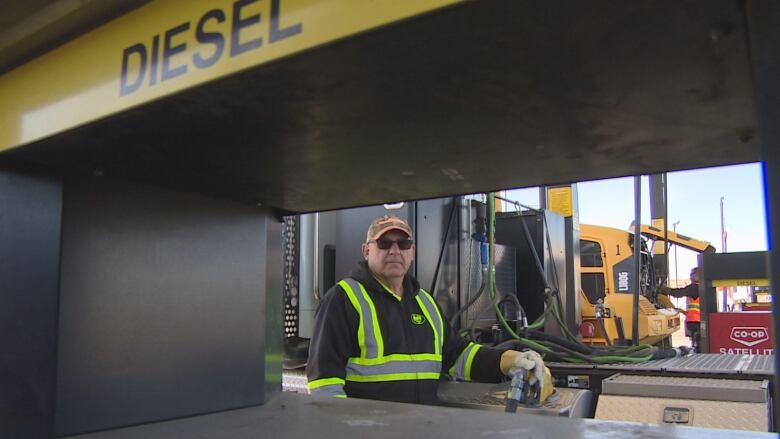'You can't buy a Prius and move dirt': Critics say carbon tax will punish industry
Both Taxpayers Federation and construction association want federal government to consult with industry

Critics say the proposed federal carbon tax will harm industry and heavy vehicle operators while doing little to affect climate change.
On Thursday, the federal government released details of a carbon tax plan that would ensure a carbon price of at least 11 cents a litre on gasoline in all provinces by 2022.
Saskatchewan has refused to bring in a carbon tax, and Premier Brad Wall said the province would be taking the federal government to court.
Todd MacKay, Prairie director for the Canadian Taxpayers Federation, said a carbon tax would disproportionately affect industry and shipping in the province.
- Liberals outline how national carbon tax plan will work
- Sask. premier not happy with federal government's response on carbon tax letter
"It's not just about folk living downtown and taking their bike to work. A lot of the work that gets done in this country is powered by diesel," said MacKay.
Semi-trailers and construction equipment have massive fuel tanks and are required to fill up frequently. Adding a carbon tax even at $10 per ton could cost operators considerably. A front end loader with a 1,000-litre tank would cost almost $200 more to fill with a $50 per ton carbon tax, according to MacKay.

He said that there aren't green alternatives for building roads, hauling trailers and working with heavy machinery.
Shantel Lipp, president of the Saskatchewan Heavy Construction Association, said it costs an association member over $100,000 a month to fill up a semi.
"So you tack on a $50 a ton carbon tax and it's going to be extravagant," said Lipp.
She said that the federal government's decision to impose a carbon tax right now was tantamount to operators being bullied.
"They don't have any alternatives. Contractors don't fuel their trucks with fairy dust and unicorn horns, they're running on diesel," said Lipp.
She said the industry, including the 200 plus members of the SHCA, is looking to reduce its emissions.
Both Lipp and MacKay said they believe the provincial government will fight the carbon tax and that the federal government should consult with industry before moving ahead with any future carbon tax.
"There aren't really any other options. You can't buy a Prius and move dirt," said MacKay. "It doesn't change the environment because at the end of the day we've still got to move dirt."
With files from ICI Saskatchewan